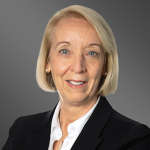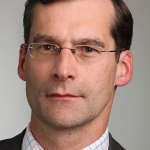Herbert Smith Freehills (HSF) has quadrupled the number of female partners in its London corporate team since 2017, with women comprising 45% of all new partners joining the team since then.
‘We knew we had a problem and we knew it was business critical to fix it,’ says Mike Flockhart, HSF’s London-based global co-head of corporate. Mike credits his fellow global co-head, Melbourne-based Carolyn Pugsley, as an important catalyst for change. ‘Carolyn brought different perspectives to the global leadership team, and was inspirational to a generation of female talent who were looking for leadership. Here we had a successful female partner, managing a career and family and being very authentic about her experience.’ Mike also notes the role that senior male leaders like James Palmer and Stephen Wilkinson played: ‘They were uncompromising about the need to change, and the need to prioritise the development and support of female talent.’
HSF’s approach has been to run a number of initiatives in parallel. These include using talent mapping to identify female talent earlier in their careers, providing one-to-one mentoring and career development opportunities, launching a global female talent forum for a cohort of high performing senior female associates, and undertaking a detailed study of the experiences of women in the corporate division in the lead up to, during, and after periods of maternity leave. The firm was also one of a handful of law firms to participate in a ground-breaking research project conducted by Murray Edwards College, Cambridge, to establish how men and women can work together to transform workplace culture barriers to women’s progress into leadership positions.
‘The idea was to create a culture in which female talent could thrive, and to be more open about the challenges and hold conversations about how best to support female talent, recognising that each individual is different and has different aspirations, needs and experiences,’ says Mike.
HSF’s talent mapping enabled the firm to be bolder in career conversations, especially at key milestones in people’s careers, assuring top talent that they were on track and would be supported to develop their career and their business case for partnership. Senior partners were identified as sponsors and challenged to monitor and support the development of their candidates, and the practice group management team reviewed progress regularly. The global female talent forum brought in senior firm leadership including chief executive Justin D’Agostino and senior partner Rebecca Maslen-Stannage to talk to female senior associates, and drew on the experiences of female role models in the partnership, and among clients and senior business service leaders. While an important objective of the forum is to support more women into the partnership, it recognises that this is not necessarily the end result for all participants, and therefore has a broader scope of encouraging the associates to consider what a successful and fulfilling career might encompass. Mike credits corporate practice director Tessa Barber as being the driving force behind the forum.
Mike regards the maternity survey as being the most confronting of the initiatives. It was led by two senior women in the London corporate team, Miriam Everett (now global head of data and privacy) and senior associate Amy Waddington and involved interviewing over 20 current and former employees about their experiences around maternity leave. ‘I remember them delivering the conclusions of their report to the partners. It was an emotional moment. There was recognition of the profound need for change,’ Mike comments. Miriam also recalls the emotional toll that many women spoke about when trying to adjust to a return to work after maternity leave; when work expectations of them had not changed but their lives had nonetheless fundamentally been altered by the experience of motherhood. ‘I was surprised that so many women had never been asked by the firm about their experience. It was clear from every single conversation that there were many ways in which, even small changes could have a big impact on our female colleagues and how they felt about a return to work.’ The exercise led to a series of recommendations that the practice adopted to improve the experience of women before, during and after periods of maternity leave.
Mike is adamant that the team’s work is not done: ‘Gender equity is a key focus for our UK business as a whole and we will be working closely with other practice leaders to fully embed what is working.’ For example, the change in working patterns post-pandemic has thrown up both opportunities and challenges. Carolyn agrees: ‘We have made good progress but there is more to be done. The firm is targeting 40% female representation in the partnership by 2030 and we have a way to go to achieve that within the corporate practice. Promoting more females is also just the start of the job – we’re just as intently focused on how we support them to launch as partners. It can be difficult in those early years to calibrate what success looks like as a new partner, particularly for females (and males) transitioning to/from parental leave or juggling parental duties. The ambition to build a market-leading practice is a given, so it’s just a matter of exploring what a sustainable build out looks like for each individual partner and ensuring they’ve got the right support around them to deliver it.’
For more information, please contact:
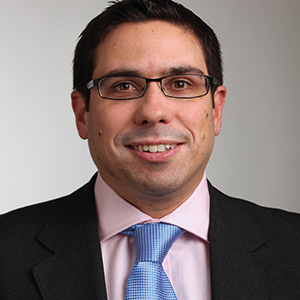
Mike Flockhart
Managing partner, corporate
London
T: +44 20 7466 2507 / +44 798 0573761
mike.flockhart@hsf.com
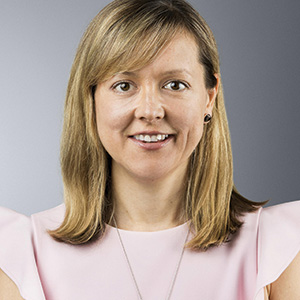
Carolyn Pugsley
Managing partner, corporate
Melbourne Australia
T: +61 3 9288 1058 / +61 438 074 738
carolyn.pugsley@hsf.com
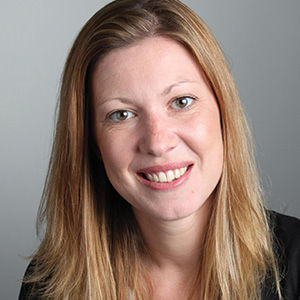
Miriam Everett
Partner, global head of data and privacy
London
T: +44 20 7466 2378 / +44 7545 300 862
miriam.everett@hsf.com









